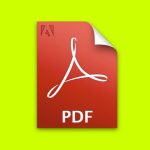International trade, that is, importation and exportation of goods and services, is an essential aspect of Nigeria’s economy. As a nation, we depend highly on imported goods and get a considerable percentage of the national revenue from exportation.
Like every other nation, some regulations guide Nigeria’s importation and exportation processes. So, as an individual or business who wants to dabble in importing and exporting, you must be familiar with these regulations.
Table of Contents
Nigeria Importation Regulations
Before any goods or product can be allowed into the country, it must be certified safe and up to the required quality standard. Certain products are prohibited to maintain trade and economic balance, national security, or comply with international agreements. Importation regulations are implemented to ensure that these criteria are not compromised.
These regulations are usually enforced by commissioned regulatory bodies within the country, who issue certifications and licenses to importers if their goods meet these standards. Let’s talk about some of the key regulatory bodies in Nigeria.
Read also: How to Boost Intra-African Trade
-
Key regulatory bodies and authorities
Nigeria has different import and export regulatory bodies, each with different roles and responsibilities. Some of the critical bodies regulating import and export in Nigeria include:
- Nigerian Customs Service (NCS): Under the supervision of the Nigerian Ministry of Finance, the Nigeria Customs Service is the primary enforcer of import and export regulations in Nigeria. Their two primary duties include the collection of import and export duties and the prevention of smuggling.
- National Agency for Food and Drug Administration and Control (NAFDAC): NAFDAC primarily operates within Nigeria to regulate the production and sale of food, drugs, medical substances, etc. However, their duty also extends to the borders of this nation to prevent the import and export of substandard food, drugs, and medical substances.
- Standards Organization of Nigeria (SON): As their name implies, they ensure every item of goods imported into the nation meets the required quality standard.
- Nigerian Ports Authority (NPA): They implement and enforce port regulations and manage port operations.
Read also: Managing Business Risks in Nigeria: Strategies for Sustainability
-
Important importation documents
As an importer, certain import and export documentation are required before your goods can be imported into the country. Here are some important ones.
- Bill of lading: A bill of lading is issued when your import and export goods have been loaded onto a ship, an aircraft, or any other means of transportation.
- Commercial invoice: Just like a regular invoice, a commercial invoice contains detailed information about the goods you’re importing.
- Certificate of origin: It indicates where the goods are coming from.
- Import license or permit: An import license or permit is issued for specific sensitive products like firearms, chemicals, pharmaceuticals, etc.
- Packing list: It is a list that describes the contents of each package in your shipment.
- Product certificates: A product certificate certifies that certain products have passed performance and quality assurance tests.
- Import manifest: It’s a document that contains detailed information/inventory of what is being shipped on a particular ship, aircraft, or any other means of transportation.
-
Import procedure
Before you can begin importing and exporting in Nigeria, you or your business must be registered with the Nigerian Ports Authority. You would then be issued a Certificate of Incorporation. Other vital registrations include:
- Registration with the Federal Inland Revenue Services (FIRS).
- Up-to-date proof of Tax Payments with allocated Tax Identification Number (TIN Number).
- Valid email address tagged to TIN.
- Valid Bank in Nigeria to act as your Authorized Dealer Bank (ADB).
Once the above is done, you can then follow the following steps:
- Obtain the necessary regulatory certificates, e.g., product certificates.
- Activate your product certificate on the SON website.
- Open a Form M (Declaration of intention to import physical goods into Nigeria) on the Nigerian Trade Platform and attach the required documents, e.g., Insurance Certificate, Proforma Invoice, Product Certificate, etc.
- Submit the Form M to your ADB.
- The ADB will review/validate Form M and send it to the NCS.
- The NCS will accept Form M or reject it if it does not meet all requirements.
- If the NCS accepts Form M, you can forward a copy to the exporter abroad.
- The exporter contacts Cotecna (An International Accreditation Firm) with Form M, alongside other essential documents.
- A SONCAP Certificate (Required for regulated products) is issued.
- Activate the SONCAP Certificate and apply for PAAR (Pre-Arrival Assessment Report) issuance on the Nigeria Trade Portal Single Window for Trade.
- Once the PAAR is issued, you can commence the clearance of the imported goods.
- Submit import manifest to customs/NPA/Terminal Operator.
- The vessel arrives, and you pay ship and NPA charges and Issue a bill of lading.
- Terminal Handling/Weighing, Loading of Cargo, Issuing bills for handling/ rent and delivering the goods.
Join our WhatsApp Community to access opportunities and resources that will benefit you.
Nigeria Exportation Regulations
Export regulations are put in place for several reasons, such as environmental and conservation concerns, protection of intellectual properties, economic protectionism, etc. Again, as an individual or business owner who wants to get into import and export in Nigeria, it is essential that you know and understand these regulations.
-
Key regulatory bodies and authorities
Like in importation, the Nigeria Customs Service, NAFDAC, and SON are also vital regulatory bodies in exportation. However, other government bodies and agencies play significant roles in import and export in Nigeria. They include:
- National Association of Commerce Mines and Agriculture (NACCIMA): They are intermediaries between business owners and the federal government.
- Nigerian Export Promotion Council (NEPC): The NEPC helps ensure a seamless export trade in Nigeria.
- Nigeria Export Processing Zone Authority (NEPZA): They oversee Nigeria’s 34 licensed Free Export Processing Zones (EPZ).
- Nigerian Export-Import Bank (NEXIM): They finance import and export operations in Nigeria. They are specifically focused on the non-oil sectors of the economy.
- Nigeria Shippers Council: They protect the interests of shippers involved in import and export in Nigeria by ensuring fair trade and compliance with established standards.
-
Important exportation documents
Here are some of the key import and export documents you need for exportation in Nigeria:
- Packing list: It’s applicable for import and export and shows the total quantity you’re exporting.
- Bill of lading: It is also applicable for both import and export. It specifically outlines the terms of the transportation agreement.
- Inspection certification: An inspection certificate is issued to certify that the goods you are exporting have been approved as safe and in good condition upon inspection.
- Export contract: It’s a contract between the exporter and the importer.
- Export license: An export license is issued by the NEPC. A license gives you the authority to engage in exportation from Nigeria.
- Financial documents: These documents show the required financial transactions between the importer and seller exporter.
-
Export procedure
Here is a step-by-step procedure for exportation in Nigeria:
- Choose your export agents (Forwarder). A forwarder organizes the shipment of goods from one country to another.
- The importer abroad must open a letter of credit.
- Take an insurance policy for your cargo.
- Pay all logistics services up to port.
- Your forwarder will obtain a regulatory certificate, e.g., a Product Certificate.
- Your forwarder then arranges transportation to the port. He also conducts inspections by NCS, NDLEA, NAFDAC, and other government agencies.
- Payment of duty, shipping company charges, terminal operators charges, and booking of space with the shipping agent.
- The shipping company brings in a vessel.
- Payment of ship charges, NPA charges, and issuance of bill of loading.
- The terminal operator loads cargo and issues bills for handling and rent.
- The receiver agent arranges inspection, pays port and shipping charges, and transports the cargo to the importer.
- The importer receives the imported cargo.
Read also: Organic Farming in Nigeria: Its Pros, Cons and Future Possibilities
Conclusion
Import and export duties are not reserved to the government alone. You can also get in on the import and export business as a Nigerian individual, business, or corporation. However, import and export in Nigeria are regulated, as in every other country. If you’re thinking about getting into the import and export business, it’s crucial to familiarize yourself with these regulations.
Subscribe to our newsletter to receive notifications of our latest posts on Nigerian Lifestyle, Business, Career, Techspace, etc. You’ll be glad you did.
Edited by Oluwanifemi Akintomide.
About Author
- Olutayo Inioluwa Emmanuel is a versatile, creative, results-oriented content writer with over five years of experience. He excels in creating engaging short-form and long-form content, blending creativity with strong research skills. Adding to his strengths, Olutayo strategically employs SEO best practices to enhance visibility and engagement.
Latest entries



 LifestyleFebruary 10, 2024Where to Find and Download Quality Free Books Online
LifestyleFebruary 10, 2024Where to Find and Download Quality Free Books Online

